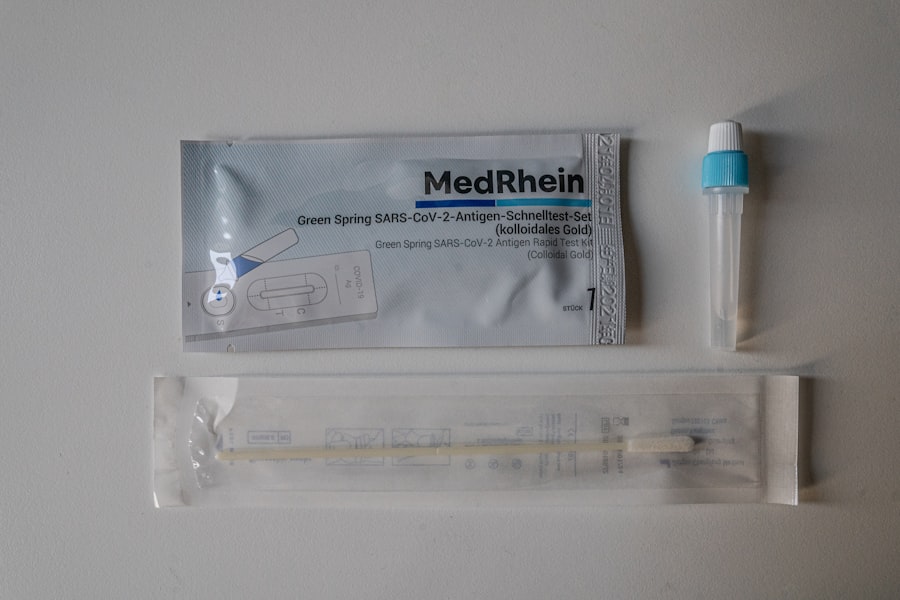The healthcare landscape is undergoing a significant transformation, driven by the rapid advancement of technology and the increasing demand for more efficient, patient-centered care. Digital healthcare partnerships are emerging as a vital component of this evolution, enabling organizations to collaborate in ways that were previously unimaginable. These partnerships often involve a diverse array of stakeholders, including hospitals, pharmaceutical companies, technology firms, and even startups focused on health innovation.
By leveraging digital tools and platforms, these entities can share resources, data, and expertise to enhance patient outcomes and streamline operations. One of the most compelling aspects of this shift is the ability to harness real-time data to inform decision-making processes. For instance, hospitals can partner with tech companies to develop applications that track patient health metrics, allowing for timely interventions and personalized care plans.
This collaborative approach not only improves patient engagement but also fosters a culture of innovation within the healthcare sector. As organizations recognize the value of working together in a digital ecosystem, they are more likely to invest in technologies that facilitate these partnerships, ultimately leading to improved healthcare delivery and operational efficiencies.
Key Takeaways
- Digital healthcare partnerships are transforming traditional medical B2B relationships.
- Big data and AI are critical tools enhancing decision-making and efficiency in healthcare collaborations.
- Telemedicine is reshaping B2B partnerships by expanding access and service delivery.
- Blockchain technology is improving transparency and security in medical transactions.
- Collaboration and innovation are essential for advancing future healthcare partnerships.
Leveraging Big Data and Analytics in Medical B2B
Big data and analytics have become indispensable tools in the medical B2B landscape, providing organizations with the insights needed to make informed decisions. The sheer volume of data generated in healthcare—from electronic health records (EHRs) to wearable devices—offers a treasure trove of information that can be analyzed to identify trends, improve patient care, and optimize business operations. For example, pharmaceutical companies can utilize big data analytics to assess the effectiveness of their drugs in real-world settings, allowing them to refine their marketing strategies and better target healthcare providers.
Moreover, healthcare providers can leverage analytics to enhance operational efficiency. By analyzing patient flow data, hospitals can identify bottlenecks in their processes and implement changes that reduce wait times and improve patient satisfaction. Predictive analytics can also play a crucial role in anticipating patient needs, enabling providers to allocate resources more effectively.
As organizations increasingly recognize the power of data-driven decision-making, the integration of big data analytics into their operations will become a standard practice in the medical B2B sector.
The Role of Artificial Intelligence in Healthcare Partnerships

Artificial intelligence (AI) is revolutionizing the way healthcare partnerships operate by automating processes, enhancing diagnostics, and personalizing treatment plans. AI algorithms can analyze vast amounts of medical data at unprecedented speeds, enabling healthcare providers to make more accurate diagnoses and treatment recommendations. For instance, AI-powered imaging tools can assist radiologists in identifying abnormalities in medical images, significantly reducing the time required for analysis and improving diagnostic accuracy.
In addition to diagnostics, AI is also playing a pivotal role in streamlining administrative tasks within healthcare partnerships. Natural language processing (NLP) technologies can automate documentation processes, allowing healthcare professionals to focus more on patient care rather than paperwork. Furthermore, AI-driven chatbots are being deployed to handle routine inquiries from patients, freeing up staff to address more complex issues.
As AI continues to evolve, its integration into healthcare partnerships will likely lead to enhanced collaboration among stakeholders and improved patient outcomes.
Streamlining Supply Chain Management in the Medical Industry
| Metric | Description | Current Value | Target Value | Impact on Supply Chain |
|---|---|---|---|---|
| Order Fulfillment Time | Average time taken from order placement to delivery | 5 days | 2 days | Faster delivery improves patient care and reduces stockouts |
| Inventory Turnover Rate | Number of times inventory is sold and replaced over a period | 4 times/year | 8 times/year | Higher turnover reduces waste and storage costs |
| Supply Chain Cost Reduction | Percentage reduction in overall supply chain expenses | 0% | 15% | Cost savings can be reinvested in technology and resources |
| Order Accuracy Rate | Percentage of orders delivered without errors | 92% | 99% | Improves reliability and reduces returns or delays |
| Supplier Lead Time | Average time suppliers take to fulfill orders | 7 days | 3 days | Shorter lead times enhance responsiveness to demand changes |
| Stockout Rate | Percentage of times inventory is unavailable when needed | 8% | 2% | Lower stockouts ensure continuous availability of medical supplies |
| Return Rate | Percentage of products returned due to defects or errors | 5% | 1% | Reducing returns improves efficiency and patient safety |
Efficient supply chain management is critical in the medical industry, where timely access to medical supplies and equipment can directly impact patient care. The complexity of healthcare supply chains—often involving multiple suppliers, distributors, and healthcare providers—necessitates innovative solutions to streamline operations. Digital technologies such as Internet of Things (IoT) devices and advanced inventory management systems are being employed to enhance visibility across the supply chain.
For example, IoT sensors can monitor the condition of medical supplies during transport, ensuring that temperature-sensitive products remain within safe limits. Moreover, data analytics plays a crucial role in optimizing inventory levels and reducing waste. By analyzing historical usage patterns and predicting future demand, healthcare organizations can maintain optimal stock levels while minimizing excess inventory.
This not only reduces costs but also ensures that essential supplies are readily available when needed. As healthcare partnerships increasingly focus on supply chain efficiency, collaboration among stakeholders will be essential for implementing these innovative solutions effectively.
The Impact of Telemedicine on B2B Healthcare Partnerships
Telemedicine has emerged as a transformative force in healthcare delivery, particularly in the context of B2B partnerships. The ability to provide remote consultations and monitoring has expanded access to care for patients who may otherwise face barriers due to geography or mobility issues. Healthcare organizations are increasingly collaborating with telemedicine platforms to integrate these services into their offerings, creating a more comprehensive care model that meets the needs of diverse patient populations.
The rise of telemedicine has also prompted healthcare providers to rethink their partnerships with technology companies. For instance, hospitals may partner with telehealth providers to offer virtual visits as part of their service portfolio. This collaboration not only enhances patient access but also allows healthcare organizations to optimize their resources by reducing the need for in-person visits for non-urgent cases.
As telemedicine continues to gain traction, its integration into B2B healthcare partnerships will likely become a standard practice, driving innovation and improving patient outcomes.
The Rise of Personalized Medicine in B2B Collaborations

Personalized medicine represents a paradigm shift in how healthcare is delivered, focusing on tailoring treatments to individual patients based on their unique genetic makeup and health profiles. This approach has significant implications for B2B collaborations within the medical field. Pharmaceutical companies are increasingly partnering with research institutions and technology firms to develop targeted therapies that address specific patient populations.
For example, collaborations between biotech companies and academic institutions have led to breakthroughs in gene therapy and precision oncology. Furthermore, personalized medicine relies heavily on data sharing among partners to create comprehensive patient profiles that inform treatment decisions. Healthcare providers must collaborate with laboratories and diagnostic companies to ensure that genetic testing results are integrated into clinical workflows effectively.
This collaborative effort not only enhances treatment efficacy but also fosters a culture of innovation within the healthcare ecosystem. As personalized medicine continues to evolve, B2B partnerships will play a crucial role in advancing research and improving patient care.
Incorporating Blockchain Technology in Medical B2B Transactions
Blockchain technology is gaining traction in the medical B2B sector as a means of enhancing security, transparency, and efficiency in transactions. The decentralized nature of blockchain allows for secure sharing of sensitive medical data among stakeholders while maintaining patient privacy. For instance, pharmaceutical companies can use blockchain to track the provenance of drugs throughout the supply chain, ensuring that products are authentic and have not been tampered with.
Additionally, blockchain can facilitate seamless transactions between healthcare providers and suppliers by automating contract management and payment processes. Smart contracts—self-executing contracts with the terms directly written into code—can streamline procurement processes by automatically triggering payments upon delivery confirmation. This not only reduces administrative burdens but also minimizes the risk of fraud and errors in transactions.
As organizations increasingly recognize the potential of blockchain technology, its integration into medical B2B transactions will likely become more prevalent.
The Importance of Collaboration and Innovation in the Future of Healthcare Partnerships
The future of healthcare partnerships hinges on collaboration and innovation as key drivers of success. As the industry continues to evolve rapidly due to technological advancements and changing patient expectations, organizations must work together to navigate these challenges effectively. Collaborative efforts among diverse stakeholders—ranging from healthcare providers to technology firms—will be essential for developing innovative solutions that address pressing issues such as access to care, cost containment, and quality improvement.
Moreover, fostering a culture of innovation within healthcare partnerships will enable organizations to adapt quickly to emerging trends and technologies. By encouraging open communication and knowledge sharing among partners, organizations can leverage each other’s strengths and expertise to drive progress. As the healthcare landscape becomes increasingly complex, the ability to collaborate effectively will be paramount for organizations seeking to thrive in this dynamic environment.
Embracing innovation as a core value will not only enhance operational efficiencies but also ultimately lead to improved patient outcomes across the board.



